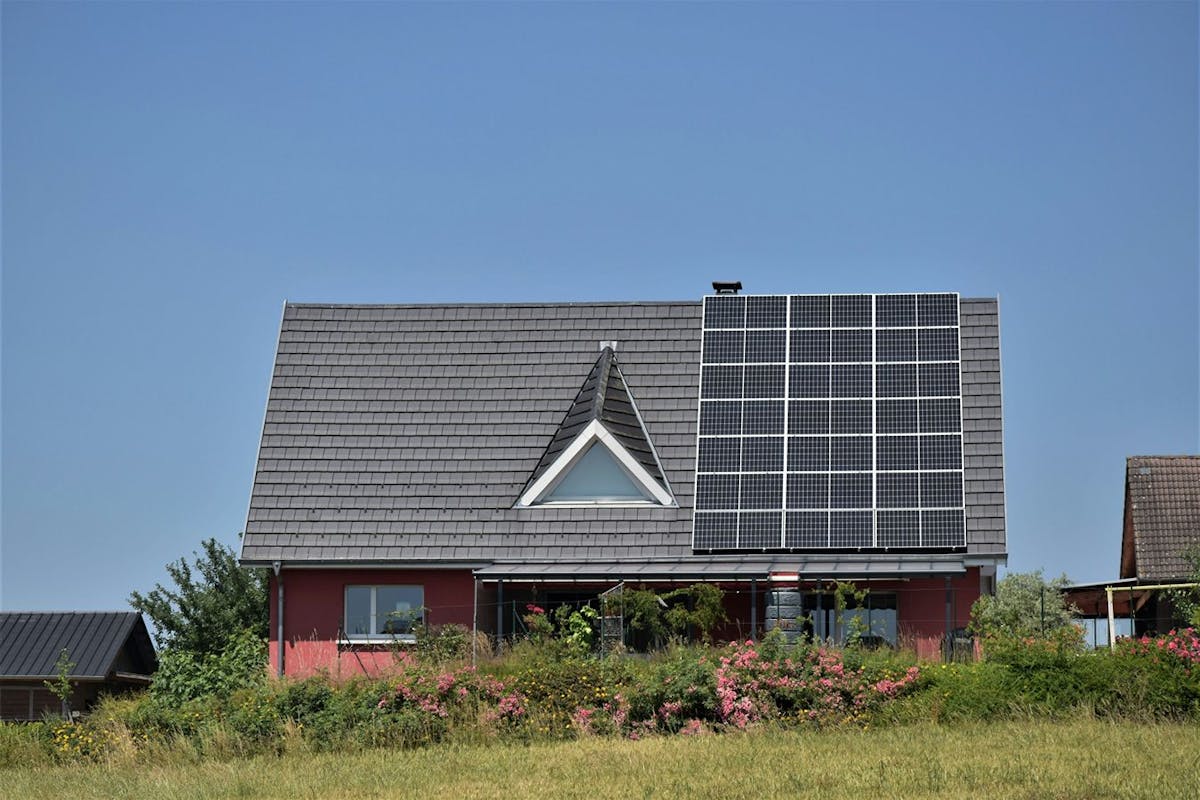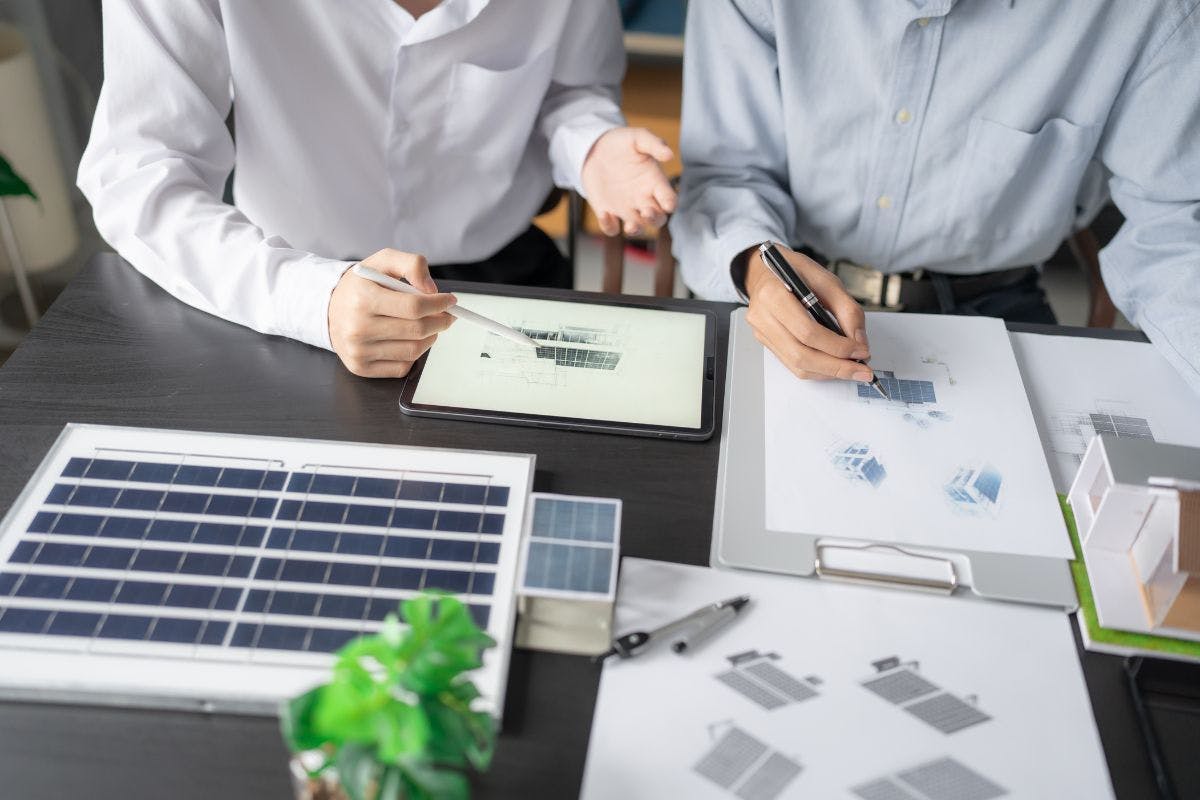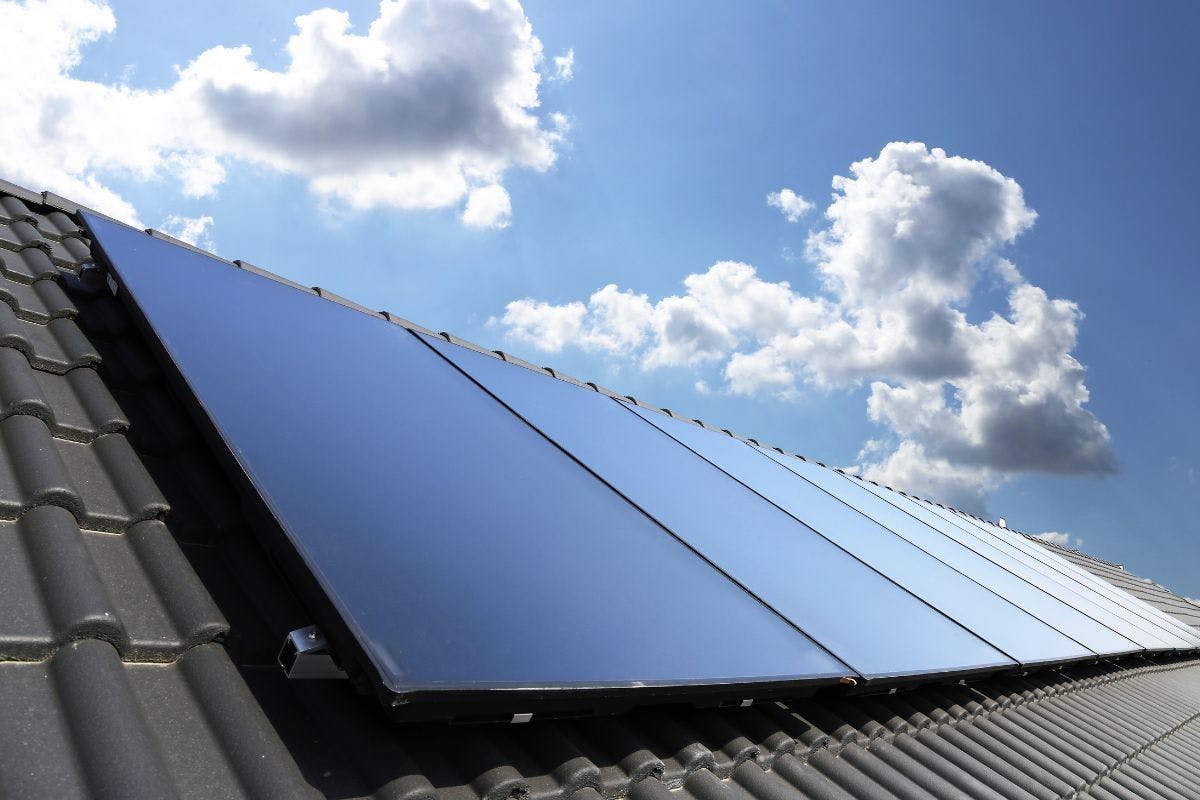Buying a House With Solar Panels on it: What to Know
Last edited

Author
Andrew Giermak
Solar and Electrification Writer and Editor

Editor
Andrew Blok
Electrification and Solar Writer and Editor

Buying a home is a huge decision and investment. Adding more questions and financial decisions on top of it is probably not welcome. But, if you’re looking at a home with home solar panels on it, what is important to know?
The main advantages include saving money on your future utility bills, using clean energy, and having greater energy independence for decades to come. Before buying though, it’s wise to make sure your investment makes sense. Here’s a list of good questions to ask before buying a home with solar power.
See how much you can save by going solar with Palmetto
10 Questions to Ask When Buying a House With Solar Panels
To uncover the true value of an existing set of solar panels, already on a house you’re thinking about buying, we recommend asking these 10 questions before making a decision.
1. When were the solar panels installed?
Knowing the exact age of your future solar panels and all components in the system is very important to determine their present value. Today, most solar panels operate efficiently for 25 to 30 years, meaning that systems installed in the last 10 years or so should still have a long road of emission-free electricity production ahead. On the other hand, solar panels close to that 25-year mark may no longer be as efficient and cost-saving as their younger selves.
2. What company installed the solar panels?
Besides the age of the system, the company that installed it is perhaps the most valuable piece of information you should have. If after a bit of research, you discover the original installer has a bad reputation, you may be able to avoid issues the home seller is trying to escape. Of course, on the flip side, you may be delighted to find the homeowner is working with a company that takes care of its customers.
3. Who can I contact with questions about the solar panels?
If the original company or contractor that installed your seller's solar panels is still in business, it should be relatively easy to find contact information for customer support. However, if the solar panels are “orphaned” and the original installer is no longer available, the home seller may have a new contact with an individual or business that can assist with the transition, answer questions, and handle future maintenance.
4. Are the solar panels purchased, leased, or something else?
Knowing whether the current homeowners have chosen to buy or lease their solar panels is vital to determine if purchasing the home will be worth your investment. Owned solar panels usually increases home value. A solar leases will need to be transferred into your name or bought out by the seller.
5. Can I see the solar electricity production data so far?
In plain sight, it’s impossible to tell if solar panels are actively generating electricity, and taking the seller's word for it is an unnecessary risk. To make sure the system is working as promised, ask the seller if you can see the recent electricity production data. This information may come in two forms: past electricity bills or through digital solar monitoring software like the Palmetto App.
See how much you can save by going solar with Palmetto
6. How much is your average electricity bill?
The primary goal of most solar buyers is to save money on electricity costs. If reduced electricity bills are a key selling point of the home you plan to purchase, the current owners should have no problem sharing past electricity bills that reflect these solar savings. Seeing electricity bills can also help you prepare for the seasonality of solar panels so you know what energy expenses to expect throughout the year.
7. Is the solar system still under a warranty?
Home solar panels should have long warranties since solar panels are expected to last and operate efficiently for 25 years or longer. But, different components, such as inverters or batteries, could have different length warranties. Battery warranties are generally 10-15 years, so it’s common to replace batteries in a home solar system’s full lifespan.
8. Have you had any issues or maintenance performed on the system?
If you are buying a house with solar panels on it, ask the seller if anything has gone wrong with the system. While post-installation issues with solar panels are fairly rare, issues during extreme weather or a natural disaster can happen. Frequent losses in power output may be signs of larger problems. In the case a part malfunctioned in the past but appears to be operating fine currently, any previous fixes shouldn't discount the value of a currently-functioning solar system.
9. Does the system have battery backup? How often do you use battery backup power?
There are pros and cons to having battery backup with a solar system, so a system with no battery isn’t necessarily a drawback. A new buyer should know specifics such as capacity, how the current owner uses battery power, and how the system and batteries work together. Is the current owner using backup power every night? Just during emergencies?
10. What should I expect at the end of the panels’ working lifetime?
Even though it may be more than 20 years in the future, thinking about the end of your solar panels’ lifetime may also factor into your home-buying decision. At the end of a solar lease, you may have several choices to terminate, extend, or renew your agreement, as well as the possibility to buy out your equipment. On the other hand, if you purchase a home with solar panels that have been paid off (i.e. financed by the sellers), you will then want to verify if there are any costs associated with the panels’ eventual removal.
Pros and Cons of Buying a House With Solar Panels
Here's a look at the three most important pros and cons of buying a house with solar panels already installed.
| Pros | Cons |
|---|---|
| Lowered utility bills | A home's price is generally more expensive upfront, given the panels' value |
| Solar power is more sustainable with and a smaller carbon footprint | Homes with solar sell faster on average, making competition higher |
| Increased energy independence | An unfavorable lease or older system can lead to additional expenses |
Should You Buy a House With Solar Panels on it?
Moving into a home with solar power already in place has savings, energy-independent, and environmental benefits in most cases.
Running through some easy questions is a great way to facilitate an honest and helpful conversation about how solar panels can be a positive part of your investment right when you move in and in the long term.
A solar-powered home can have a smaller-than--usual monthly utility bill, keeping your living expenses lower for years to come.
To see more about the benefits and savings with solar power and moving toward home electrification, check out Palmetto's Savings Maximizer.
See what solar can do for you:
Frequently Asked Questions
Is it worth buying a house with solar panels?
In most cases, solar panels make a property more valuable. Most home solar systems give homeowners savings on energy bills, clean and independent energy, and a valuable addition to the home which needs little maintenance.
Should you buy a house with a solar lease?
Buying or selling a home with a solar lease can have the extra steps for the new buyer agreeing to take on the lease or the seller buying out the lease. Either way, a solar lease can give you savings on utility bills and easy care of the solar system for the life of the lease.
Disclaimer: This content is for educational purposes only. Palmetto does not provide tax, legal, or accounting advice. Please consult your own tax, legal, and accounting advisors.


